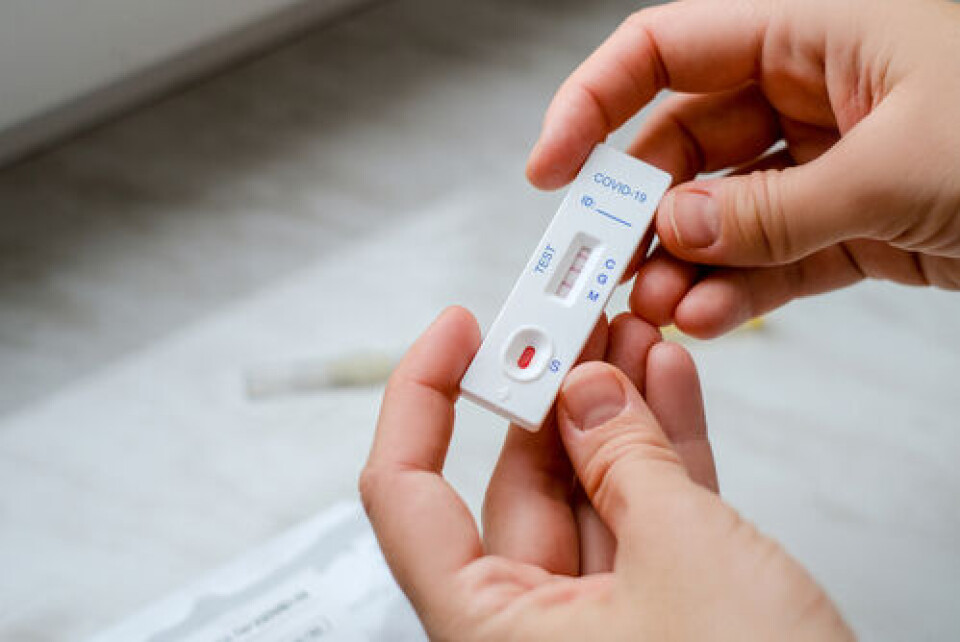-
French ski resorts report excellent Christmas despite less snow than last year
Bookings are up and non-snow related activities are also on the rise
-
When my husband dies will I lose access to healthcare in France through his S1?
Settled residents in France can access healthcare through 'Puma' system
-
American celebrity jeweller robbed of ‘more than €1m’ at French Riviera Airbnb
Jewellery and cash stolen from rental property where Chris Aire was staying
New rules for Covid-19 in France: Testing, contact cases, isolation
The changes come as the number of cases of the virus have dropped significantly

Covid rules on testing, self-isolation and contact tracing in France are being relaxed from today (February 1) as cases drop. In contrast, controls for travellers from China have been prolonged.
In mid-January, levels of testing in France were at their lowest since August 2020 and the number of people receiving contact case alerts had also dropped significantly.
In the past 24 hours, there were 6,850 cases confirmed (a drop of 5.5% compared to seven days ago). This compares to a peak of 501,635 daily cases confirmed on January 25, 2022.
Read also: Why many doctors’ surgeries will be closed for a day in February
Testing rules
People who receive a test at a pharmacy or a lab will be asked if they grant permission to share their details. If they decline, they can no longer receive a negative test certificate. However, the test result will still be used, anonymously, to inform the collection of data and allow authorities to track the epidemic.
Self-isolation
Systematic and obligatory isolation for people who test positive is no longer required (although it is still recommended).
Contact cases
Contact cases no longer have to do a Covid test two days after being identified as a contact. The test and trace teleservice Contact Covid is also no longer in operation.
Time off work pay
The waiting period before the payment of daily sick pay allowances in case of Covid infection has been re-introduced. The payments are no longer automatic, as stated in the Journal Officiel on January 28.
The end of measures in France?
The change in measures and requirements comes following advice in an open letter from the Haut Conseil de la Santé publique (HSCP) on January 26. However, it has not ruled out the reintroduction of more stringent measures if needed.
Its author, HSCP president Didier Lepelletier, said: “We must continue to follow the epidemiological indicators so we can put measures back in place if necessary.”
He added: “This is about removing the ‘obligatory’ element of these measures, and instead to inculcate universal hygiene behaviours in the population, to protect the weakest in society.”
Read also: France Covid: Have you started wearing a mask again? Your feedback
Testing extended for travellers from China
In contrast, France is extending health checks to travellers from China after the emergence of a rising number of Covid-19 infections after the Lunar New Year.
Controls on travellers from the country had been set to end on January 31, but they have now been extended to at least February 15, “given the evolving health situation“, the Journal Officiel said on January 28.
The rules state that travellers aged 11 or over travelling from China to France must show a negative Covid test from within the past 48 hours before they depart.
The initial text, from December 30, stated: “Travellers can also get a test on arrival and isolate in case of a positive result.”
Other countries including Japan, Canada, the US, Australia and some European nations had also required negative Covid tests for travellers departing from China.
It comes after the country experienced sharp rises in the number of Covid cases after the Lunar New Year celebrations, which saw many people travel long distances and mix with family and friends.
Daily deaths in the country had dropped by 80% by the start of 2023 (although some analysts have doubted whether the figures provided by Beijing are accurate).
























